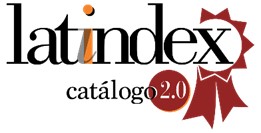Contributos sobre o pensamento computacional na formação inicial de professores: Uma experiência com o Scratch para o 1.º Ciclo
DOI:
https://doi.org/10.48489/quadrante.36983Palavras-chave:
aprendizagem matemática, formação de professores, pensamento computacional, ScratchResumo
O pensamento computacional é assumido como uma competência do século XXI, ganhando reflexo nas revisões curriculares dos últimos anos em diversos países. Em Portugal, o pensamento computacional surge como uma das capacidades matemáticas transversais nas Aprendizagens Essenciais de Matemática de 2021. Este artigo apresenta um estudo de natureza exploratória que visa conhecer o contributo do trabalho de futuras professoras dos primeiros anos com o Scratch para a sua prática futura no 1.º ciclo do ensino básico, num contexto de formação que integra a aprendizagem da Geometria e Medida e o desenvolvimento do pensamento computacional. Participam no estudo quatro futuras professoras que frequentam mestrados que habilitam para a docência no 1.º ciclo do ensino básico. Os resultados evidenciam o reconhecimento das futuras professoras de oportunidades de integração do conhecimento matemático e de práticas do pensamento computacional com a realização e discussão da tarefa “A horta da turma”, de desafios na gestão da aula e de dificuldades dos alunos, que conseguem antecipar. A realização dessa tarefa com recurso ao Scratch permite identificar a articulação entre práticas do pensamento computacional e a aprendizagem de tópicos matemáticos específicos, como sendo o perímetro e a área de retângulos.
Referências
Benton, L., Hoyles, C., Kalas, I., & Noss, R. (2017). Bridging primary programming and mathematics: Some findings of design research in England. Digital Experiences in Mathematics Education, 3(2), 115–138. https://doi.org/10.1007/s40751-017-0028-x
Bogdan, R., & Biklen, S. (1994). Investigação qualitativa em educação. Porto Editora.
Brennan, K., & Resnick, M. (2012). New frameworks for studying and assessing the development of computational thinking. In Proceedings of the 2012 Annual Meeting of the American Educational Research Association, Vancouver, Canada (pp. 1–25). http://scratched.gse.harvard.edu/ct/files/AERA2012.pdf.
Broza O., Biberman-Shalev, L., & Chamo, N. (2023). “Start from scratch”: Integrating computational thinking skills in teacher education program. Thinking Skills and Creativity, 48, 101285. https://doi.org/10.1016/j.tsc.2023.101285
Canavarro, A. P., Mestre, C., Gomes, D., Santos, E., Santos, L., Brunheira, L., Vicente, M., Gouveia, M. J., Correia, P., Marques, P., & Espadeiro, G. (2021). Aprendizagens Essenciais de Matemática no Ensino Básico. ME-DGE. http://www.dge.mec.pt/aprendizagens-essenciais-ensino-basico.
Chan, S.-W., Looi, C.-K., Ho, W. K., & Kim, M. S. (2023). Tools and approaches for integrating computational thinking and mathematics: A scoping review of current empirical studies. Journal of Educational Computing Research, 60(8), 2036-2080. https://doi.org/10.1177/07356331221098793
Espadeiro, R. G. (2021). O pensamento computacional no currículo de Matemática. Educação e Matemática, 162, 5–10.
Gadanidis, G., Cendros, R., Floyd, L., & Namukasa, I. (2017). Computational thinking in mathematics teacher education. Contemporary Issues in Technology and Teacher Education, 17(4), 458–477. https://citejournal.s3.amazonaws.com/wp-content/uploads/v17i4Math3.pdf
Hardin, J. S., & Horton, N. J. (2017). Ensuring that mathematics is relevant in a world of data science. Notices of the American Mathematical Society, 64(9), 986-990. https://www.ams.org/publications/journals/notices/201709/rnoti-p986.pdf
Kallia, M., van Borkulo, S. P., Drijvers, P., Barendsen, E., & Tolboom, J. (2021). Characterising computational thinking in mathematics education: A literature-informed Delphi study. Research in Mathematics Education, 23(2), 159-187, https://doi.org/10.1080/14794802.2020.1852104
Li, F., Wang, X., He, X., Cheng, L., & Wang, Y. (2022). The effectiveness of unplugged activities and programming exercises in computational thinking education: A meta-analysis. Education and Information Technologies, 27, 7993–8013. https://doi.org/10.1007/s10639-022-10915-x
Ng, O., & Cui, Z. (2021). Examining primary students’ mathematical problem solving in a programming context: Towards computationally enhanced mathematics education. ZDM - Mathematics Education, 53(4), 847–860. https://doi.org/10.1007/s11858-020-01200-7
Nordby, S. K., Bjerke, A. H., & Mifsud, L. (2022a). Computational thinking in the primary mathematics classroom: A systematic review. Digital Experiences in Mathematics Education, 8(3). https://doi.org/10.1007/s40751-022-00102-5
Nordby, S. K., Bjerke, A. H., & Mifsud, L. (2022b). Primary mathematics teachers’ understanding of Computational Thinking. KI - Künstliche Intelligenz, 36, 35–46. https://doi.org/10.1007/s13218-021-00750-6
OECD (2018). PISA 2021 Mathematics framework (Draft) https://pisa2021-maths.oecd.org/files/PISA%202021%20Mathematics%20Framework%20Draft.pdf
Rodríguez-Martínez, J. A., González-Calero, J. A., & Sáez-López, J. M. (2020). Computational thinking and mathematics using Scratch: An experiment with sixth-grade students. Interactive Learning Environments, 28(3), 316–327. https://doi.org/10.1080/10494820.2019.1612448
Sáez-López, J. M., Sevillano-García, M. L., & Vazquez-Cano, E. (2019). The effect of programming on primary school students’ mathematical and scientific understanding: Educational use of mBot. Educational Technology Research and Development, 67(6), 1405–1425. https://doi.org/10.1007/s11423-019-09648-5
Seehorn, D., Carey, S., Fuschetto, B., Lee, I., Moix, D., O'Grady-Cunniff, D., Owens, B. B., Stephenson, C., & Verno, A. (2011). CSTA K-12 Computer Science Standards: Revised 2011. ACM. https://dl.acm.org/doi/pdf/10.1145/2593249
Wing, J. (2006). Computational thinking. Communications of the ACM, 49(3), 33–35.
Wing, J. (2008). Computational thinking and thinking about computing. Philosophical Transactions of the Royal Society a: Mathematical, Physical and Engineering Sciences, 366(1881), 3717–3725.
Yadav, A., Stephenson, C., & Hong, H. (2017). Computational thinking for teacher education. Communications of the ACM, 60(4), 55-62. https://doi.org/10.1145/2994591
Ye, H., Liang, B., Ng, O.-L., & Chai, C. S. (2023). Integration of computational thinking in K-12 mathematics education: A systematic review on CT-based mathematics instruction and student learning. International Journal of STEM Education, 10(3). https://doi.org/10.1186/s40594-023-00396-w
Zhang, L., & Nouri, J. (2019). A systematic review of learning computational thinking through Scratch in K-9. Computers & Education, 141, 103607. https://doi.org/10.1016/j.compedu.2019.103607











